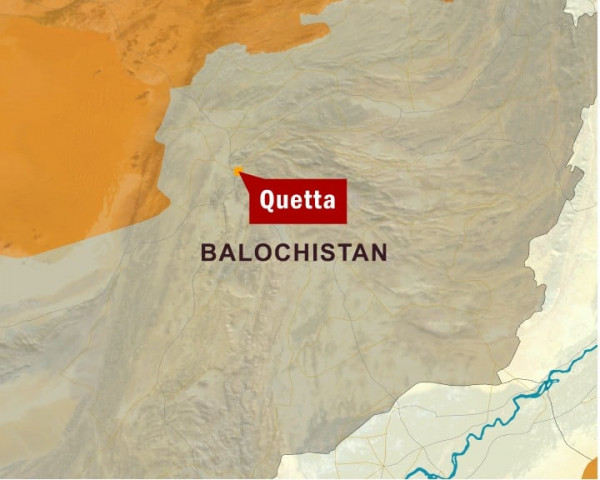Five acid attacks show women not being protected

Five acid attacks show women not being protected
One reason for the fear is that the culprits are still at large. According to the residents of Dalbandin, the day after the attack on the two sisters, unidentified persons distributed pamphlets in which a group called Baloch Ghairatmand took responsibility for the attacks and threatened women unaccompanied by male family members of similar attacks. These pamphlets were distributed in different places in the town, including the Dalbandin Press Club, shopping centres and some houses.
Thirteen-year-old Gul Begum and 11-year-old Dur Jamal, belonging to a poor family which lives in a tent, were attacked by two masked men on a motorcycle. According to Dur, “some donkeys came close to our tent and when I went out to push them away two masked men on a motorcycle appeared and threw acid on me.” Hearing her cries, her sister Gul came out of the tent and she too was attacked with acid. The sisters denied reports that they were returning from the market when the attacks were carried out. DPO Chagai Pir Jan Mengal said the police are close to catching the criminals. “Security has been beefed up in the town so there is no fear among the women and others,” he said, adding that the police had detained a lot of people who provided important information.
However, a local journalist Hyder Hajiz told The Express Tribune that women are avoiding leaving their homes without the company of male family members. “Threats are circulating through cell phone messages and pamphlets,” he said. “I received a message in which the names of women who are on the target list were mentioned,” he added, showing the message. Hajiz also pointed out that given an acute shortage of drinking water in the area, people, including women, are forced to travel long distances to get water. But after the attack on the sisters and in the absence of adequate measures by the police, women are too scared to get water.
The attack in Kalat targeted three sisters, aged 20, 14 and eight, while they were walking on the road. The three received severe burns on their faces. This time too, the perpetrators wore masks and rode a motorbike. There were other similarities too with the Dalbandin attack. Residents said that a few days prior to the attacks, unidentified people threw pamphlets in houses, shopping centres and NGO offices, threatening women who stepped outside unaccompanied by male family members. This time though, a group calling itself Rah-e-Raast claimed to be behind the message. And a Kalat-based journalist, Shadi Khan, told The Express Tribune that a few days ago, two masked men stopped a Government Girls’ College van and told the driver that girls walking to college would be attacked.
“The commercial areas are now deserted as women avoid going shopping,” he said, adding that girls or women on the road tend to get scared every time a motorcycle passes by. Meanwhile, the Kalat police say that they are facing difficulties investigating the crime due to non-cooperation by the victims’ family. Threatening messages, mostly via pamphlets, were also distributed in Kharan, Nushkhi, Quetta, Mastung and other areas.
The result is that in Quetta too women are avoiding bazaars. One resident, Nasurullah, said that his mother asks him to run all the errands now. “My mother used to go to buy vegetables every day but since the attacks she asks me to go instead.” Different political parties, including the Baloch National Front, Balochistan National Party, National Party, Jamiate- Ulema Islam, Jamaat-e- Islami and Baloch Republican Party have condemned the incidents, terming them against Baloch tradition.
Balochistan Assembly member from the Kalat district, Rubina Irfan, expressed her dissatisfaction with the government’s efforts in dealing with the crimes, saying that not a single person was arrested in the past month and neither was a committee constituted to probe the matter. “I brought an adjournment motion regarding this crucial issue but instead of approving it for debate, the speaker disposed of the motion which shows the non-seriousness of the government in addressing women-related issues,” she said. Strongly criticising the law enforcement agencies, Irfan said it is astonishing that they have failed to trace culprits in towns so small that all the residents know each other.
Published in the Express Tribune, May 22nd, 2010.



















COMMENTS
Comments are moderated and generally will be posted if they are on-topic and not abusive.
For more information, please see our Comments FAQ